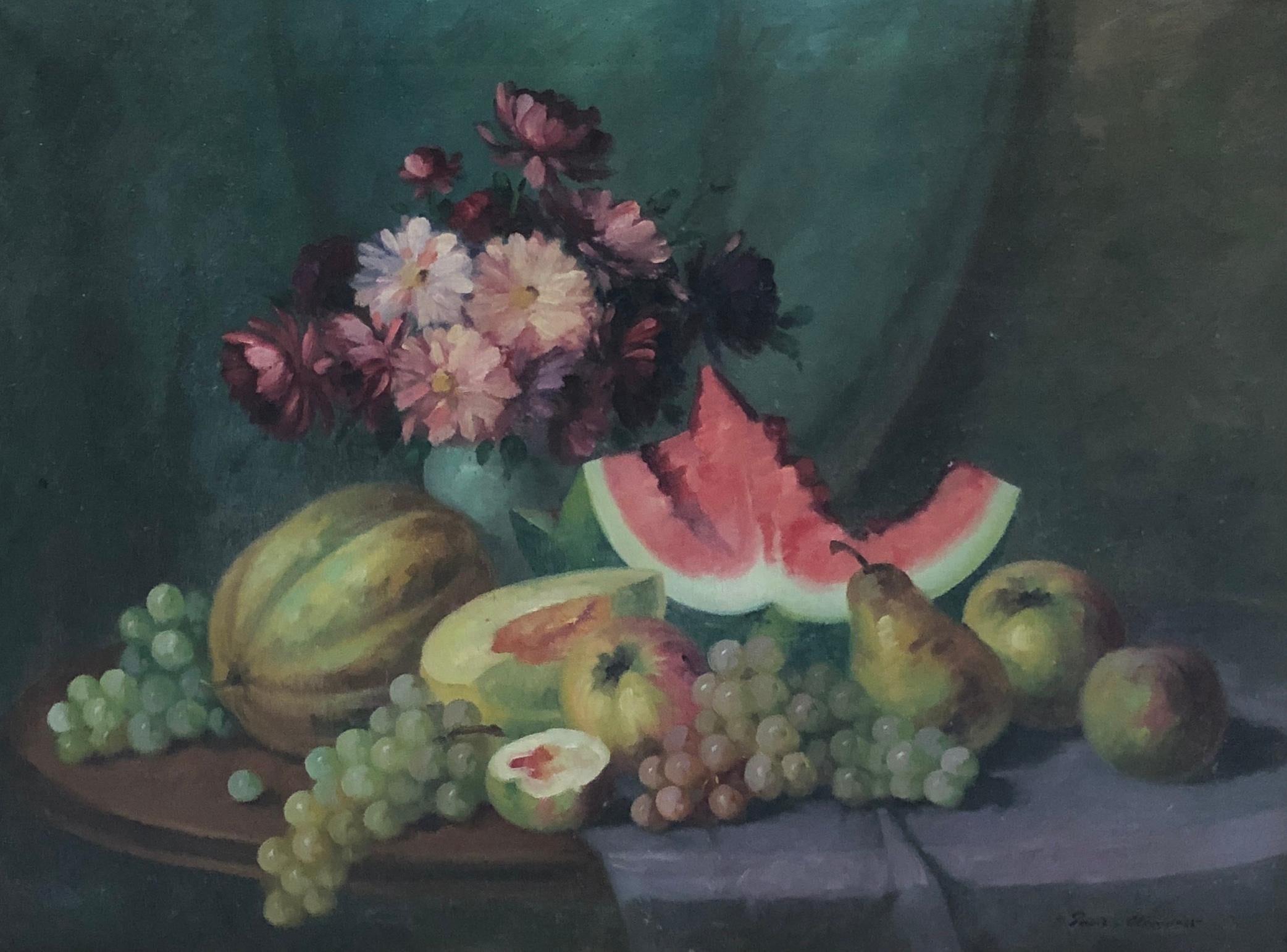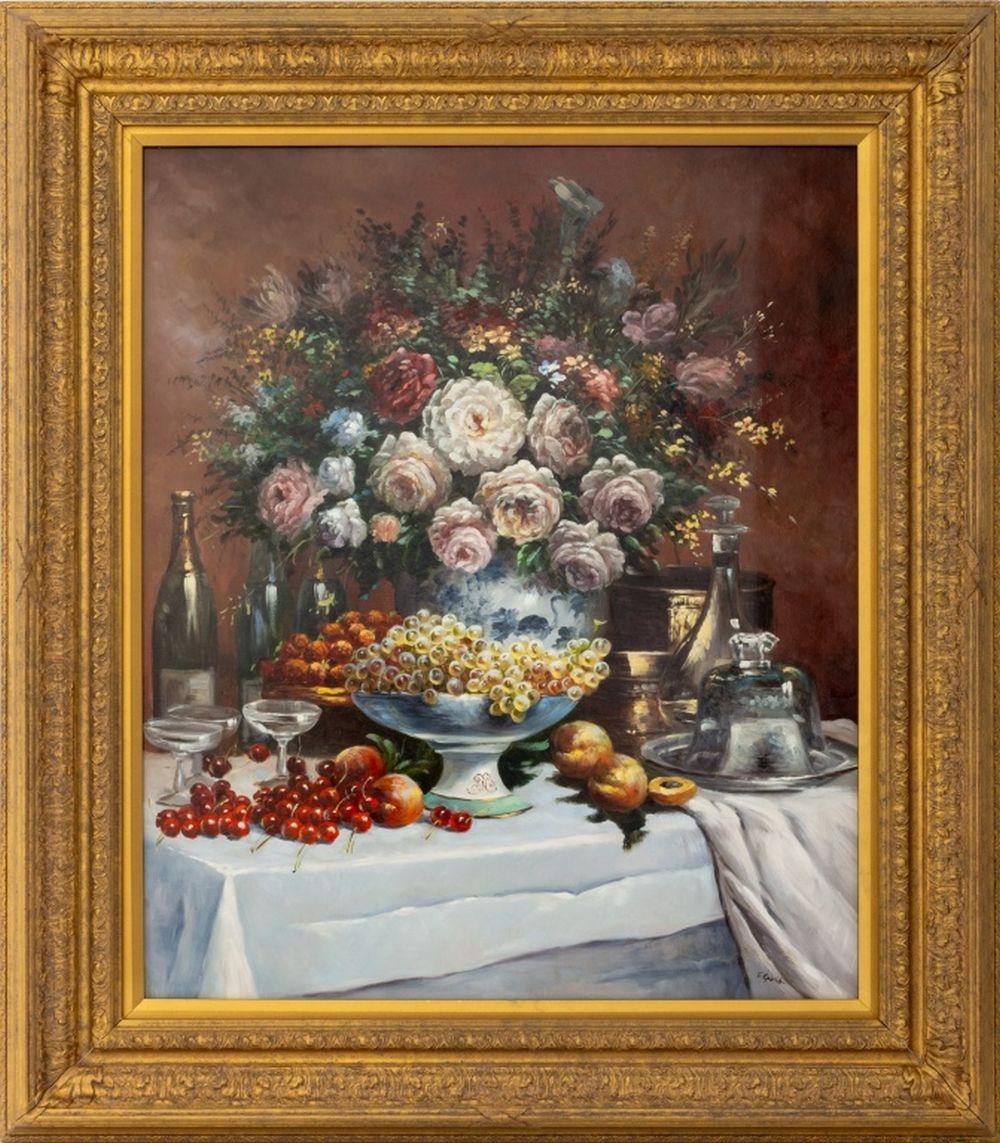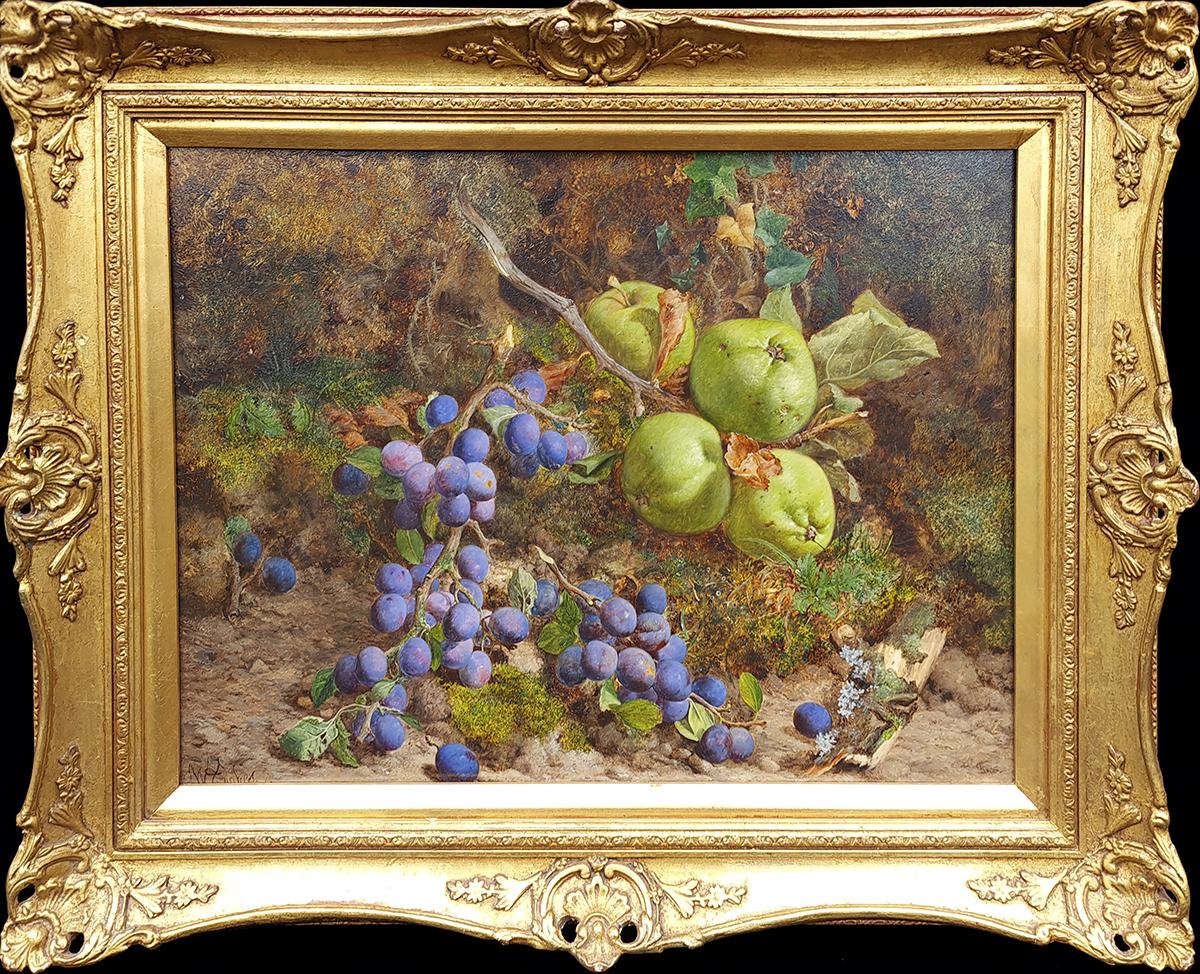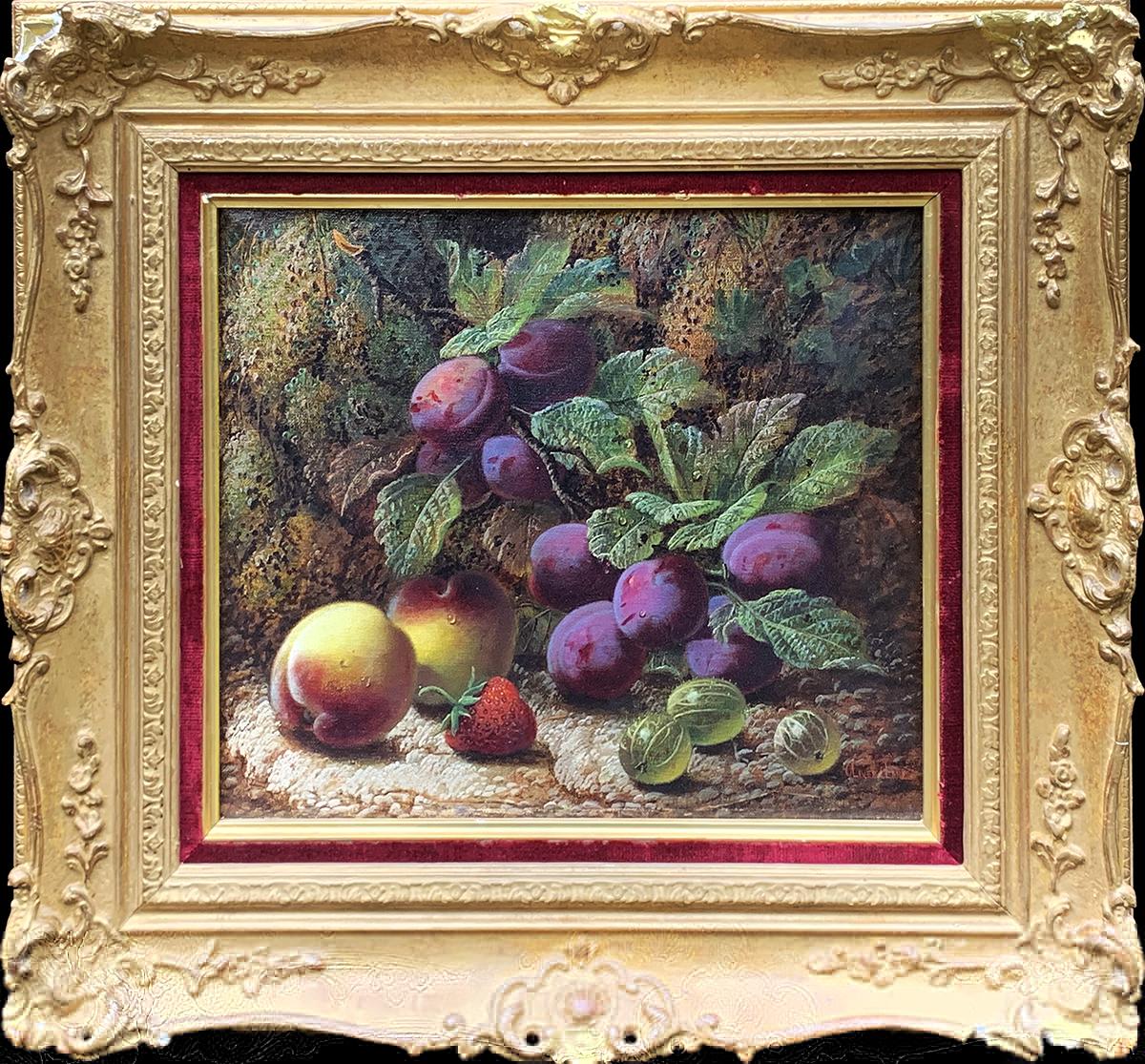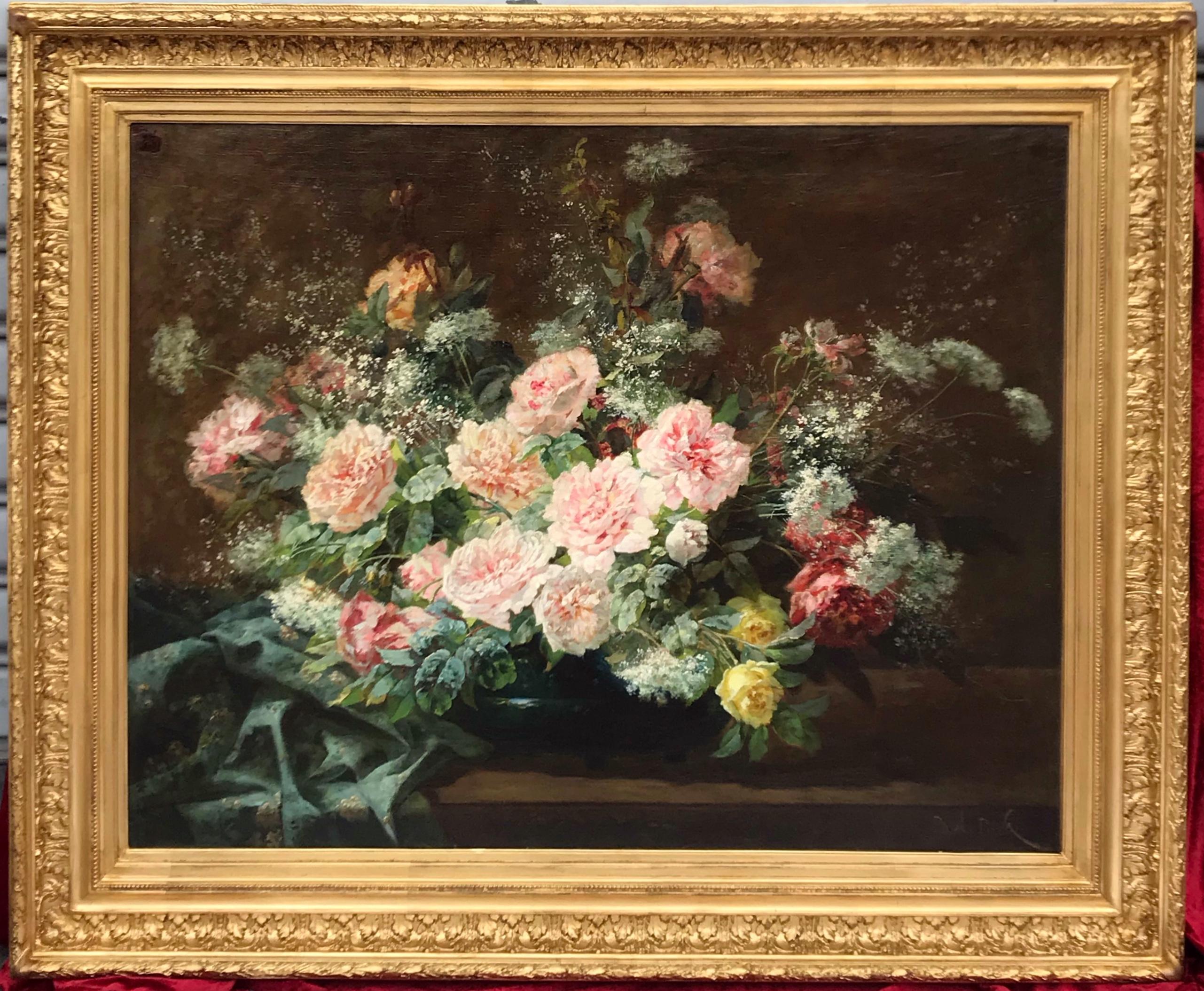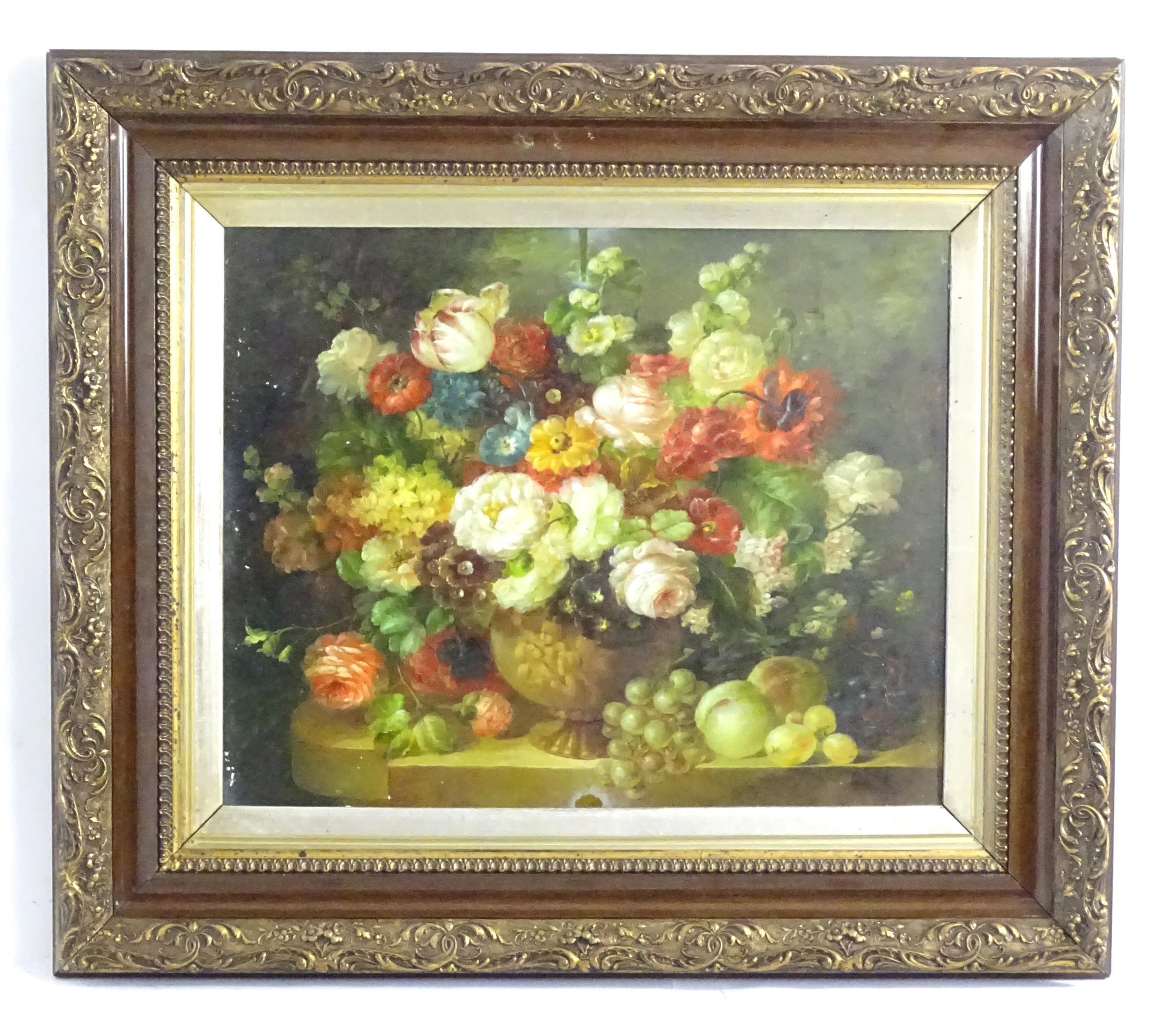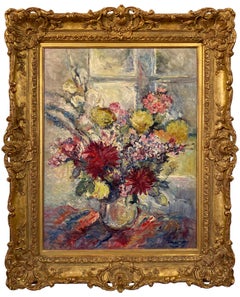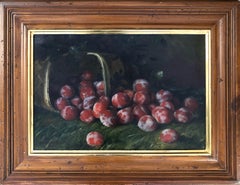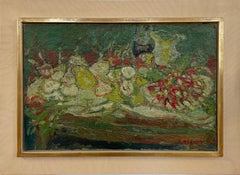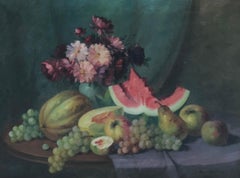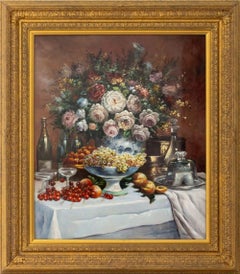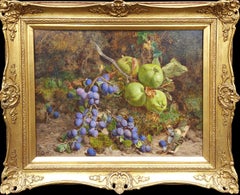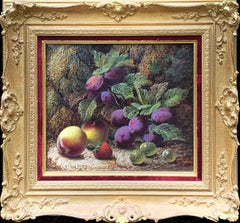Items Similar to Still Life, Flowers and Fruit
Video Loading
Want more images or videos?
Request additional images or videos from the seller
1 of 13
David de NoterStill Life, Flowers and Fruitc. 1860s
c. 1860s
$30,000
£22,703.52
€26,076.19
CA$42,661.45
A$46,253.80
CHF 24,375.65
MX$562,491.31
NOK 303,271.86
SEK 286,793.48
DKK 194,673.38
About the Item
A stunning and dramatic still life by noted Belgian 19th century artist, David De Noter. Framed in a complimentary Empire style 22 karat hand carved frame. A lovely size and elegant work to hang in a dining room or entryway.
De Noter debuted at the Salon de Paris in 1853. During the 1860’s, de Noter lived and worked in Paris and was known to have shared a studio with J. Goupil in 1864 and at Le Vésinet in 1867. At some point during his career, he toured North Africa, in particular, Algeria.
- Creator:David de Noter (1825 - 1875, Belgian)
- Creation Year:c. 1860s
- Dimensions:Height: 40.75 in (103.51 cm)Width: 34.75 in (88.27 cm)Depth: 3.5 in (8.89 cm)
- Medium:
- Movement & Style:
- Period:
- Condition:Lovely condition. Canvas is relined to lay down some light cracks that are completely normal and not problematic to viewing the painting. High quality frame in good condition!
- Gallery Location:New York, NY
- Reference Number:Seller: 148921stDibs: LU1413210956842
About the Seller
5.0
Recognized Seller
These prestigious sellers are industry leaders and represent the highest echelon for item quality and design.
Established in 1989
1stDibs seller since 2020
43 sales on 1stDibs
Typical response time: 14 hours
- ShippingRetrieving quote...Shipping from: Stamford, CT
- Return Policy
Authenticity Guarantee
In the unlikely event there’s an issue with an item’s authenticity, contact us within 1 year for a full refund. DetailsMoney-Back Guarantee
If your item is not as described, is damaged in transit, or does not arrive, contact us within 7 days for a full refund. Details24-Hour Cancellation
You have a 24-hour grace period in which to reconsider your purchase, with no questions asked.Vetted Professional Sellers
Our world-class sellers must adhere to strict standards for service and quality, maintaining the integrity of our listings.Price-Match Guarantee
If you find that a seller listed the same item for a lower price elsewhere, we’ll match it.Trusted Global Delivery
Our best-in-class carrier network provides specialized shipping options worldwide, including custom delivery.More From This Seller
View AllAutumn Flowers Post Impressionist
Located in New York, NY
Incredibly beautiful paint surface! Incredible French Gilt frame.
René Demeurisse began his exhibition career at the Salon de la Societé Nationale de...
Category
1920s French School Still-life Paintings
Materials
Canvas, Oil
$7,125 Sale Price
25% Off
Les Gros Prunes, plums still life
By Adam Lehr
Located in New York, NY
This still life of Plums is a top notch example of 19th century still life painting! Beautiful quality and striking but also spare and honest in nature which is what typified Americ...
Category
Early 1900s American Realist Still-life Paintings
Materials
Canvas, Oil
The Freshly Picked Bouquet
Located in New York, NY
An exquisite and technically superb floral work depicting flowers just laden on a table. By French Academic artist P. FRANC LAMY, it's In nice condition an...
Category
19th Century French School Still-life Paintings
Materials
Oil
Still Life with Radish
By André Cottavoz
Located in New York, NY
Still Life with Radish is a super work that uniquely and expressively captures a French kitchens table. It is also evocative of the Master Chaim ...
Category
1950s Post-Impressionist Paintings
Materials
Canvas, Oil
Peaches in Cut Glass Dish
Located in New York, NY
Pristine and purely American in its aesthetic due to the fact that the artist concentrates on one type of fruit. Europeans were much more opulent in their approach to still lifes an...
Category
1870s Hudson River School Still-life Paintings
Materials
Canvas, Oil
Roses, Historic Botanical
Located in New York, NY
A most popular drawing master, Lesourd-Beauregard exhibited extensively at the Paris Salons, and was awarded a medal in 1842.
He is famous for his in depth botanical studies done in...
Category
1850s French School Paintings
Materials
Oil, Panel
You May Also Like
Still life fruit and flowers
Located in Genève, GE
Illegible signature
Work on canvas
Golden wooden frame
56.2 x 74.5 x 3.5 cm
Category
Mid-20th Century Still-life Paintings
Materials
Oil
Floral Still Life
Located in Astoria, NY
Francois Gabriel (French, 1893-1993), Still Life with Bouquet and Fruit, Oil on Panel, late 20th century, signed lower right, giltwood frame. Image: 29.5" H x 24.5" W; frame: 39" H x...
Category
Late 20th Century Realist Still-life Paintings
Materials
Oil, Panel
Still Life of Fruit
By William Hughes
Located in Belgravia, London, London
Oil on board
Board size: 14 x 18 inches
Framed size: 18.25 x 22.75 inches
Signed lower left
Category
19th Century Still-life Paintings
Materials
Oil, Board
Still Life of Fruits (Pair)
By Oliver Clare
Located in Belgravia, London, London
Oil on canvas
Canvas size: 11.25 x 13 inches each
Framed size: 18 x 20 inches each
Signed lower right
Category
19th Century Still-life Paintings
Materials
Canvas, Oil
Flowers Still-Life
Located in Saint-Ouen, FR
BIVA Paul (1851 – 1900)
Flowers Still-Life
Oil on canvas signed low right
Old frame gilded with leaves
Dim canvas : 90 X 117 cm - Dim frame : 117 X 145 cm
BIVA Paul (1851 – 1900)
Fr...
Category
1880s Academic Still-life Paintings
Materials
Oil
Very Large Classical Oil Still Life Study Of Fruit and Flowers
By Emilio Greco
Located in Cirencester, Gloucestershire
Manner of Emilio Greco, 20th Century
oil on board, framed
framed: 24 x 29 inches
board: 16 x 20 inches
provenance: private collection, England
The painting is in very good and presen...
Category
20th Century Old Masters Still-life Paintings
Materials
Oil
$5,499 Sale Price
20% Off
More Ways To Browse
Antique Flower Art
Fruit With Flowers Oil Painting
Antique Still Life Fruit
Antique Fruit Paintings
Still Life Fruit Oil Painting 19th Century
African Carved Art 19th Century
Mark Rothko
Antique American Painting
American Midcentury Painting
South Korea
Pink Oil Painting
Musee Des Arts
Mid Century Modern Painting 1950s
Still Life European Oil Painting
View Art Painting
Winter Landscapes
Polish Artist
Trees Contemporary Art
